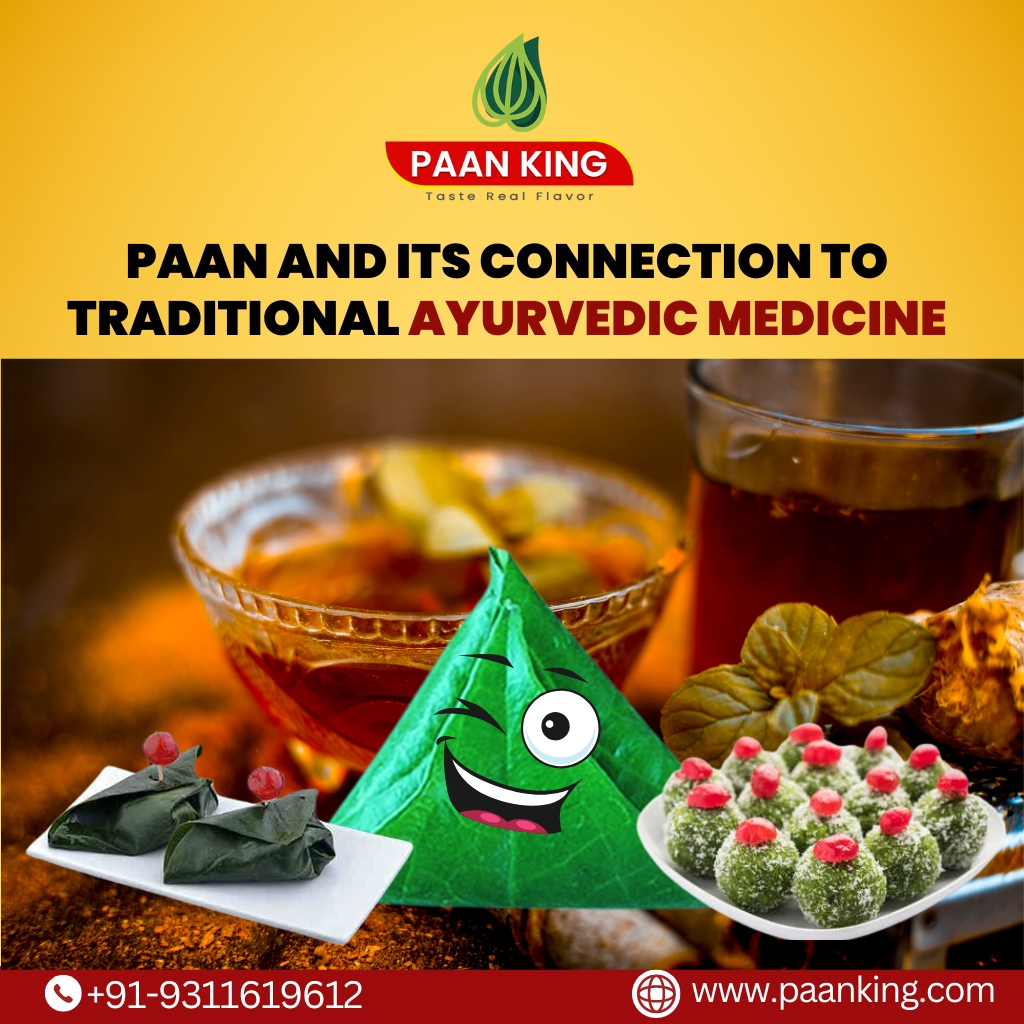
Paan is a well-known Indian mouth freshener that is prepared by sealing a mixture of areca nuts and other sweet-smelling substances in betel leaves. It is a vital component of Indian culture. In addition to its cultural value, paan has a long history in traditional Ayurvedic medicine, which has several health benefits. We are going to explore the relationship between traditional Ayurveda and paan in this blog.
- Paan in Ayurveda: Paan has been used since the ages in the traditional Indian medical system of Ayurveda because of its healing qualities. The components of paan, including spices, areca nuts, and betel leaves, are thought to have medicinal properties. Paan is thought to offer gastrointestinal, and antibacterial lines with Ayurvedic principles. It is frequently used to treat mouth ulcers, digestive issues, and foul breath.
- Betel Leaves: Nature’s Gift on the Planet: The main ingredient of paan is betel leaves, which are renowned for their abundance of bioactive substances such as polyphenols, tannins, and essential oils. These mixtures are said to have anti-inflammatory, antibacterial, and antioxidant qualities. Betel leaves are regarded in Ayurveda as cooling, digestive, and good for the mouth. They have been shown to boost hunger, support good digestion, and aid in the reduction of excessive phlegm.
- Areca Nut and Its Effects : Another important component of paan is the areca nut, which has stimulating and digesting effects. It has been suggested to increase saliva production, aid digestion, and lessen nauseous symptoms in Ayurveda. It’s crucial to remember that excessive areca nut consumption, especially if paired with cigarettes, can have negative impacts on one’s health, including addiction and an elevated risk of oral cancer.
- Spices and Aromatics: Cardamom, cloves, fennel seeds, and saffron are just a few of the spices and aromatic compounds frequently used in paan. These ingredients have medicinal properties on their own in addition to adding flavour. While fennel seeds are well known for their cooling and calming powers, cardamom and cloves are believed to have carminative and digestive functions. In contrast, turmeric is utilised in Ayurveda to support mental health because it is thought to be a mood enhancer.
Conclusion, Paan has a long history of cultural importance in India and is related to traditional Ayurvedic therapy. Even if its therapeutic benefits are well known, it’s still advisable to use paan sparingly and to be aware of any possible side effects from certain components. We can grasp paan’s historical and cultural relevance in India’s traditional healthcare system by understanding the Ayurvedic perspective on it and can be used as a medicinal product. If you are looking for the best Paan shop then you can trust Paan KIng. We have multiple varieties of Paan which are perfectly made with fresh betel leaf and other ingredients. Visit our website
